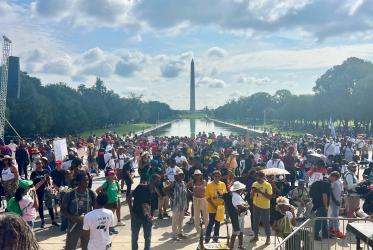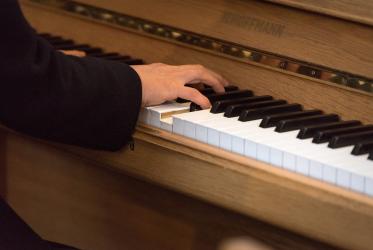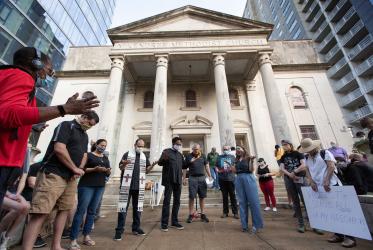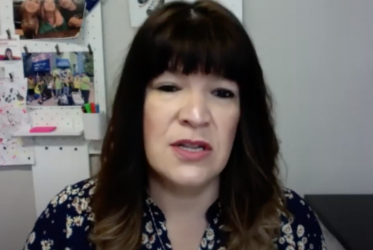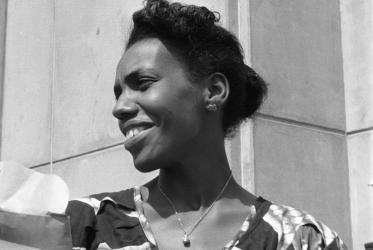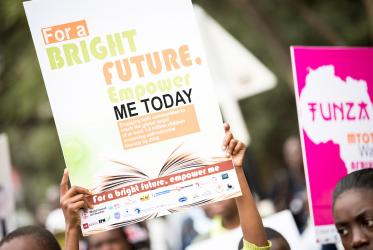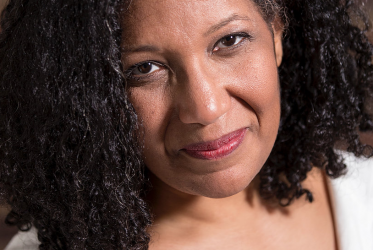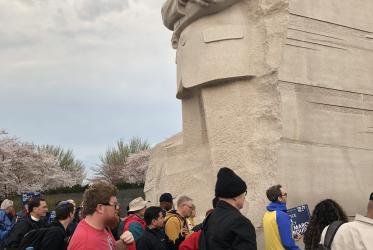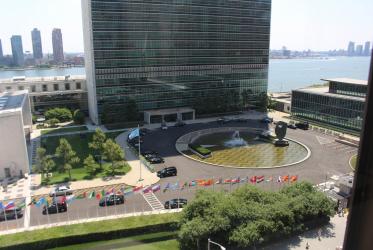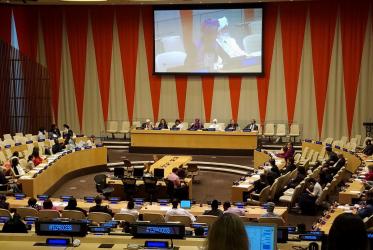Displaying 1 - 20 of 53
Wrestling with the racial pandemic
15 February 2022
Global communicator Mark Beach has died
24 September 2020
WCC well-represented in Religions for Peace leadership
07 October 2019
A tribute to Rev. Dr Rena Joyce Weller Karefa-Smart
21 January 2019
“Dear white Christians: what now?”
05 April 2018
WCC to co-host public event on migration and displacement at UN
17 January 2018

